You know that saying, “ignorance is bliss”? This might be true for some situations, but as it relates to running an organization, difficulties finding information and siloed departments does not sustain a healthy and successful workplace. Your employees and internal knowledge are the most valuable assets, which is why it’s important to prioritize how your employees interact, access, and learn about information throughout the entire workplace.
It all comes down to knowledge management. Knowledge management is how an organization creates, stores, distributes, and uses information. We don’t know what we don’t know. According to this study, 83% of respondents say they have problems accessing the data they need to do their jobs. A strong knowledge management system ensures important information efficiently reaches people and is findable when they need it, so your employees do know what they need to be successful and engaged.
There’s so many reasons why knowledge management needs to be a priority in every organization. From boosting productivity, to better decision making and improving customer satisfaction, easy access to information streamlines the entire operations of a workplace. With that said, let’s take a look at the significant benefits of knowledge management practices.
Top benefits of prioritizing knowledge management
1. Improve decision making
A robust knowledge management system empowers employees to make informed decisions swiftly. Knowledge comes in many forms—data and spreadsheets, conversations, documents, FAQ sheets, and videos. A knowledge management system organizes and centralizes this valuable information so employees can easily share knowledge, respond to customer queries faster, and collaborate on the spot.
2. Optimize operational efficiency
A common roadblock for many employees is difficulties finding the information they need to efficiently complete tasks. According to Gartner, workers spend an average of 18 minutes looking for one file. There’s many reasons why this happens—in some cases workplaces are burdened with email overload, and in other cases organizations use too many platforms. Today’s knowledge management tools, particularly those with AI capabilities, are designed to improve knowledge discovery by expediting the time it takes to sift through inboxes and simple search tools.
3. Capture organizational knowledge
Fortune 500 companies lose $31 billion from not sharing knowledge within their organization every year. Collecting internal data is an opportunity to optimize workflows, identify areas for improvement, and build a livable resource that departments and employees can leverage. With knowledge management tools, workplaces are able to store this information and build knowledge bases completely fueled by the intel of your employees. Even in the form of a “discussion”, for instance, a proper knowledge management platform will provide the space for people to ask questions or generate ideas from each other, while documenting and storing the entire thread.
4. Increase customer satisfaction
Excellent customer service requires informed employees and quick turnaround time. The only way to ensure these two components are active and thriving is through effective knowledge sharing in your departments and across your organization. The right knowledge management tools centralizes the information your support reps and customers need. (Think: FAQ pages, documentations, manuals, updates, the list goes on.) Easy access to information—whether it’s needed on-the-spot to support a customer or to train teams about important updates—will enhance overall customer experience.
5. Enhance company culture
There are so many different areas to focus on when it comes to improving company culture. By implementing knowledge management initiatives so that collaboration, continuous learning, and the resources employees need to do their jobs effectively are part of everyone’s day-to-day, employees feel more connected to their workplace. You build a foundation based on transparency and support. Plus, you have an accessible place to post team building events, company policies, and HR files.
6. Streamline onboarding
The onboarding process can play a crucial role in the longevity and success of employees. In fact, 89% of employees reported higher engagement following an effective onboarding process. To efficiently equip new hires with the tools they need to succeed, there needs to be an exchange of valuable knowledge that will prepare them for their roles. An effective knowledge management system streamlines the entire process by centralizing training materials, company videos, quizzes, and any other knowledge assets into digital hubs.
7. Encourage collaboration
Collaborative environments drive stronger project results because they call on different point of views, skillsets, and build a connected workplace. But for people to successfully work together, they need information. This can be details about the task itself, historical data, documents, and anything else relevant to the project. Using a centralized knowledge management system supplies employees with collaboration tools to manage projects and stores valuable information.
8. Foster innovation
Building a workplace where knowledge flows between coworkers, teams, and the entire company opens more possibilities for employees to share ideas and be creative. A comprehensive knowledge management strategy also covers innovation. By providing the right tools, such as crowdsourcing and ideation, that intuitively encourages people to bounce ideas off of each other, organizations can provide an avenue to further growth from within.
9. Remove knowledge gaps
Managing knowledge gets messy real fast without the right tools and strategy in place. When knowledge assets and information is difficult to find—or departments gatekeep intel— it’s common for organizations to develop business silos. Gartner says 47% of employees struggle to find the information or data they need. Making knowledge management an organizational priority eliminates the barriers that prevents employees from finding and receiving information.
Knowledge management examples: Real scenarios of how a knowledge management platform supports employees
Effective knowledge management is like an open floor plan for an organization’s knowledge. You can easily navigate the space, you see where everything is, you can ask a question and get an answer, and there’s designated spaces for people with specific knowledge. There’s so many cases where this ease of knowledge sharing comes in handy. Here’s some examples inspired by our customers:
Operating a national retail chain
Let’s say you’re the store manager of a donut shop that’s part of a national chain with 3,000 stores across the US. As the manager, communication from headquarters is imperative to remain informed about promotions, seasonal menus, sales, and company news. With a knowledge management system, you can receive all of this valuable information in one platform. You’re also able to connect with nearby managers or other people in the organization.
Improving culture for a higher education institution
Universities and colleges have a lot of faculty members and staff. Historically, culture and morale is a challenge for many institutions. By leveraging technology to share knowledge across the entire campus, which includes faculty and board members, you are able to unite every employee and member. All of the departments, music, art, business, history (you name them), can have their own space to not only share relevant information to their staff, but also display what’s going on to everyone outside of their department.
Supporting customers at a loan company
Mortgage and loan companies deal with intricate and ever changing regulations and policies that vary across regions. This makes it incredibly difficult for business application managers to find an efficient tool that stores the most up to date policies, distributes the right documentation to teams in specific cities or areas, and is also quick and easy for loan officers to use on the spot. Let’s say you’re a fairly new employee working with a customer and you need to complete a loan referral. To save time and ensure accuracy, you log into the knowledge management portal, open up the company AI chatbot, ask it, “How do I do a loan referral in Rochester, NY?” Within seconds you receive a how-to that’s specific to your state with links to supporting documentation.
Bring a robust knowledge management system to your workplace
It’s crucial that an organization’s knowledge and people are united. To make a workplace truly efficient, connected, and productive, knowledge needs to be shared with teams, and team members need to be able to share it with each other. By implementing these effective knowledge management practices, organizations can streamline every single team and the entire workplace in tandem. It starts with the strategy and tools.
Axero allows you to store, segment, and distribute organizational knowledge in a highly customizable platform. You’re able to provide employees with the specific information they need to work—and also highlight other departments so that everyone has visibility and a voice. See what peak productivity and alignment can look like with a robust knowledge management platform!
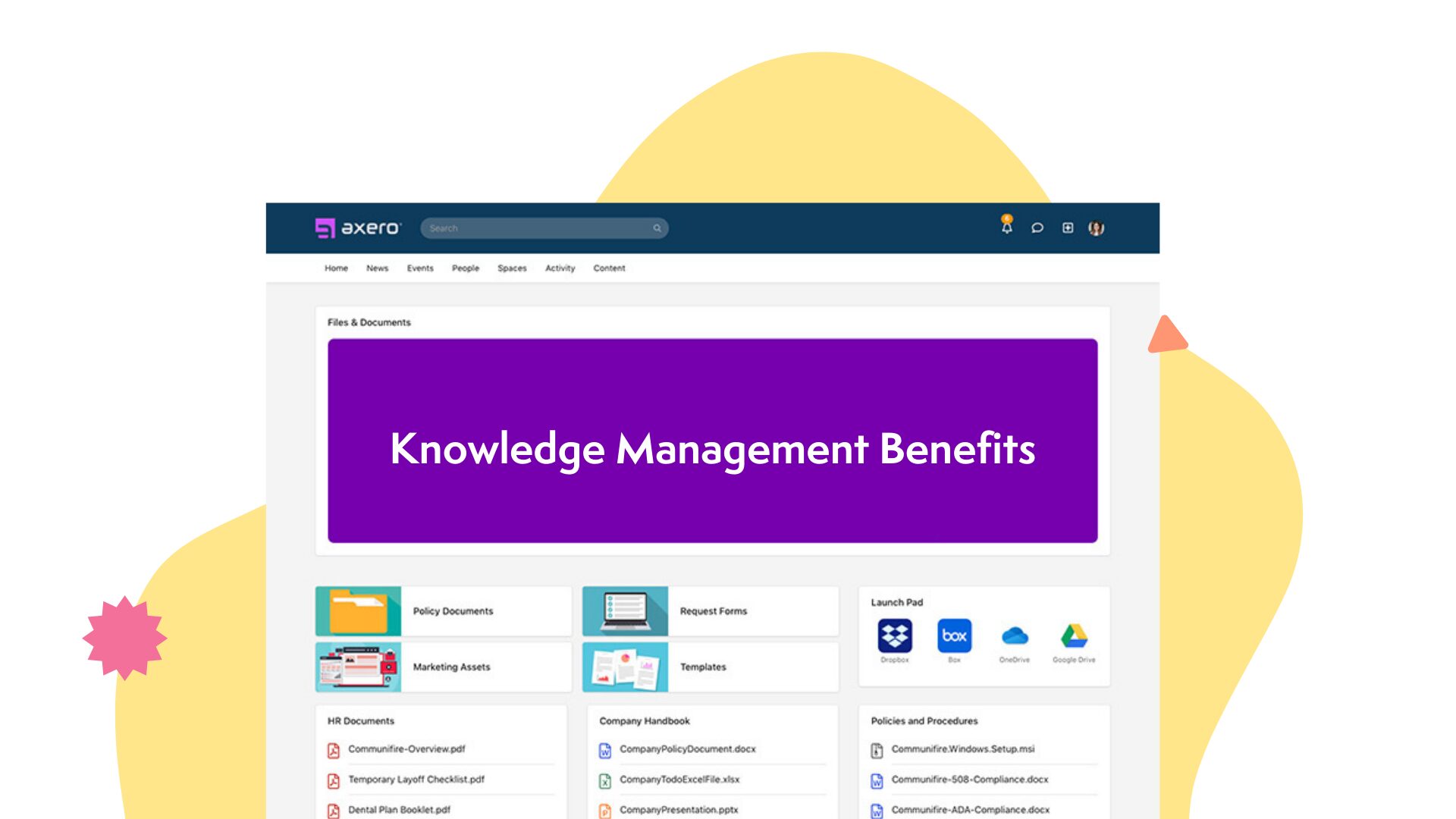


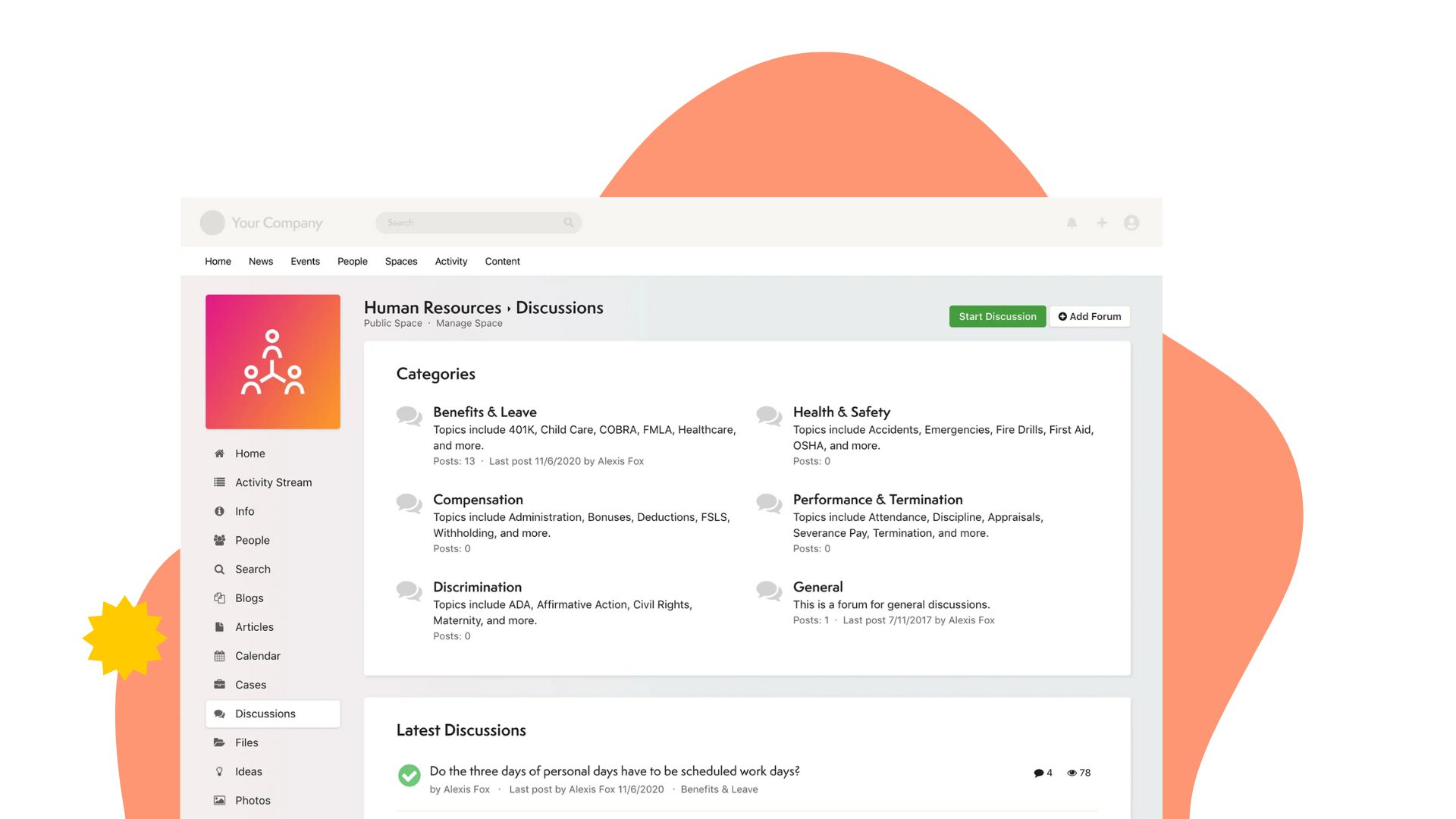
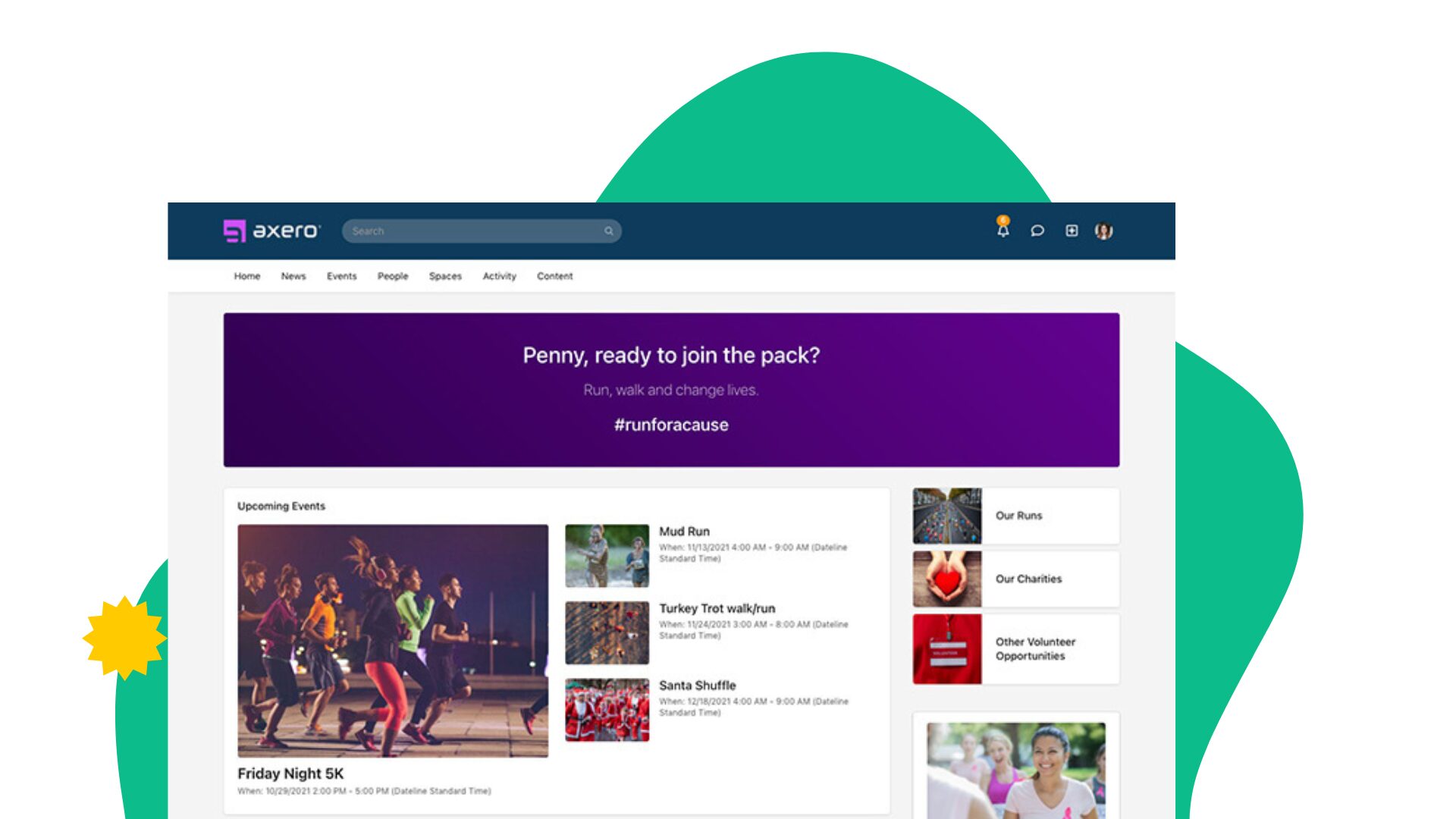
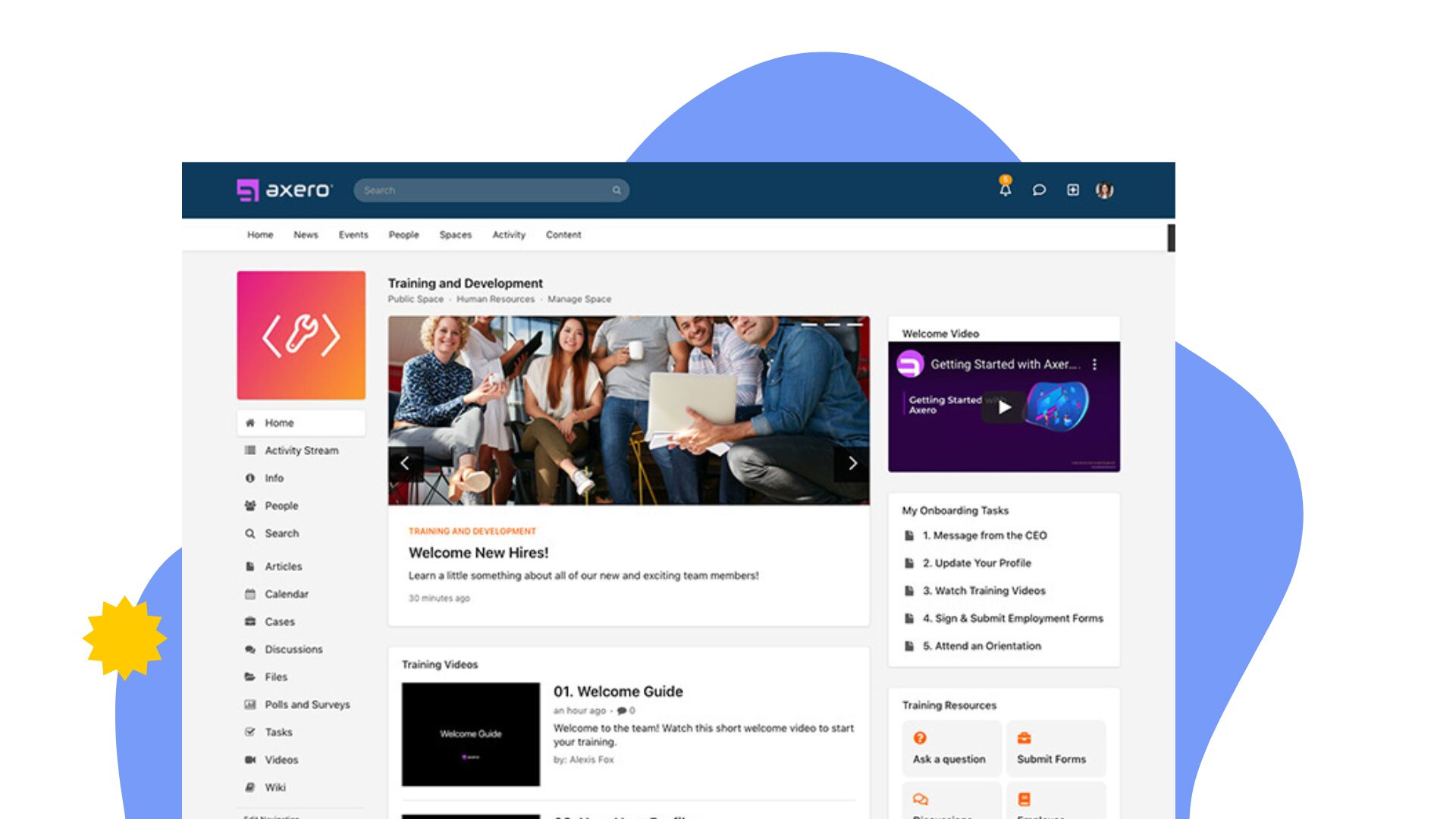
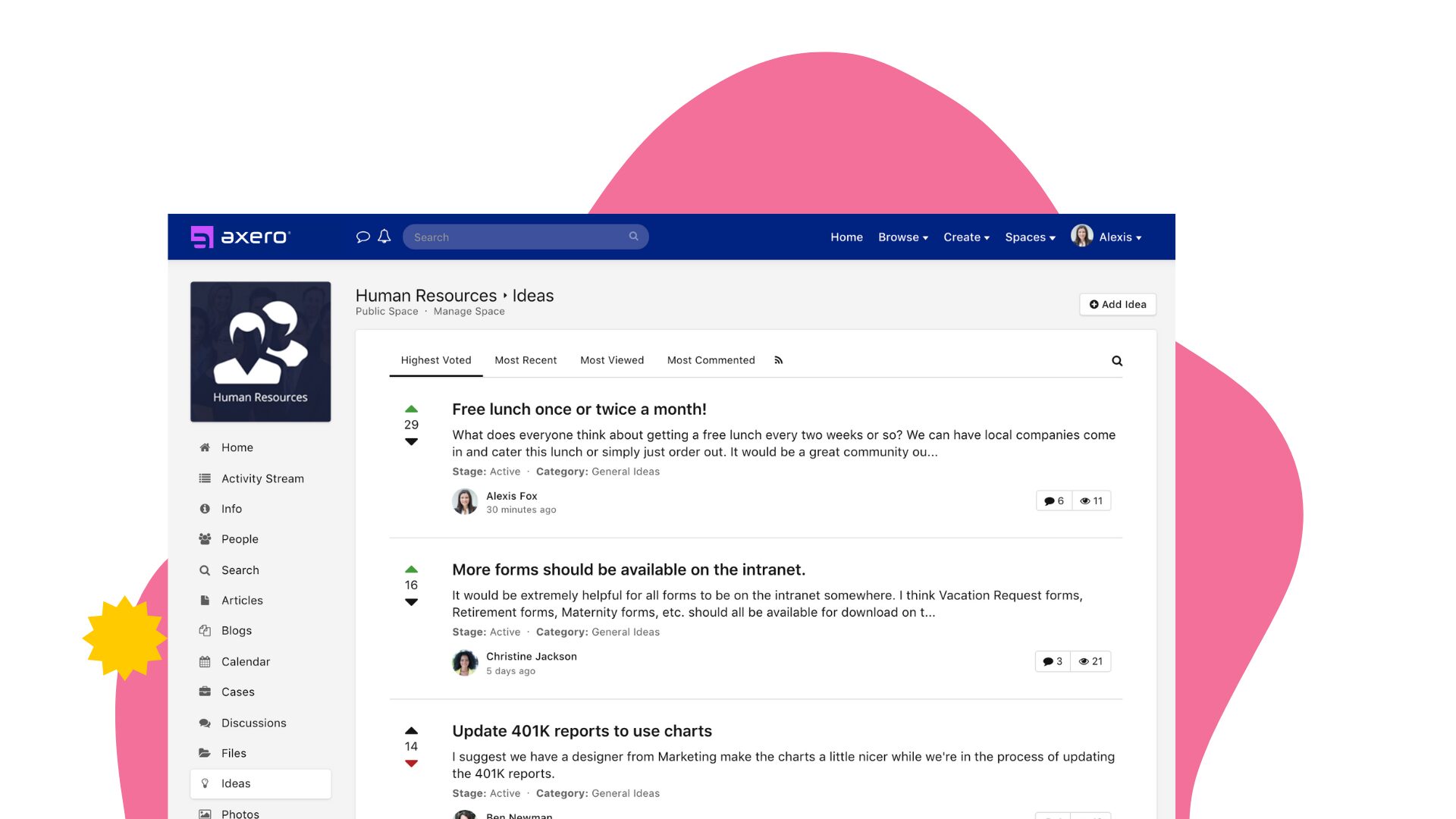
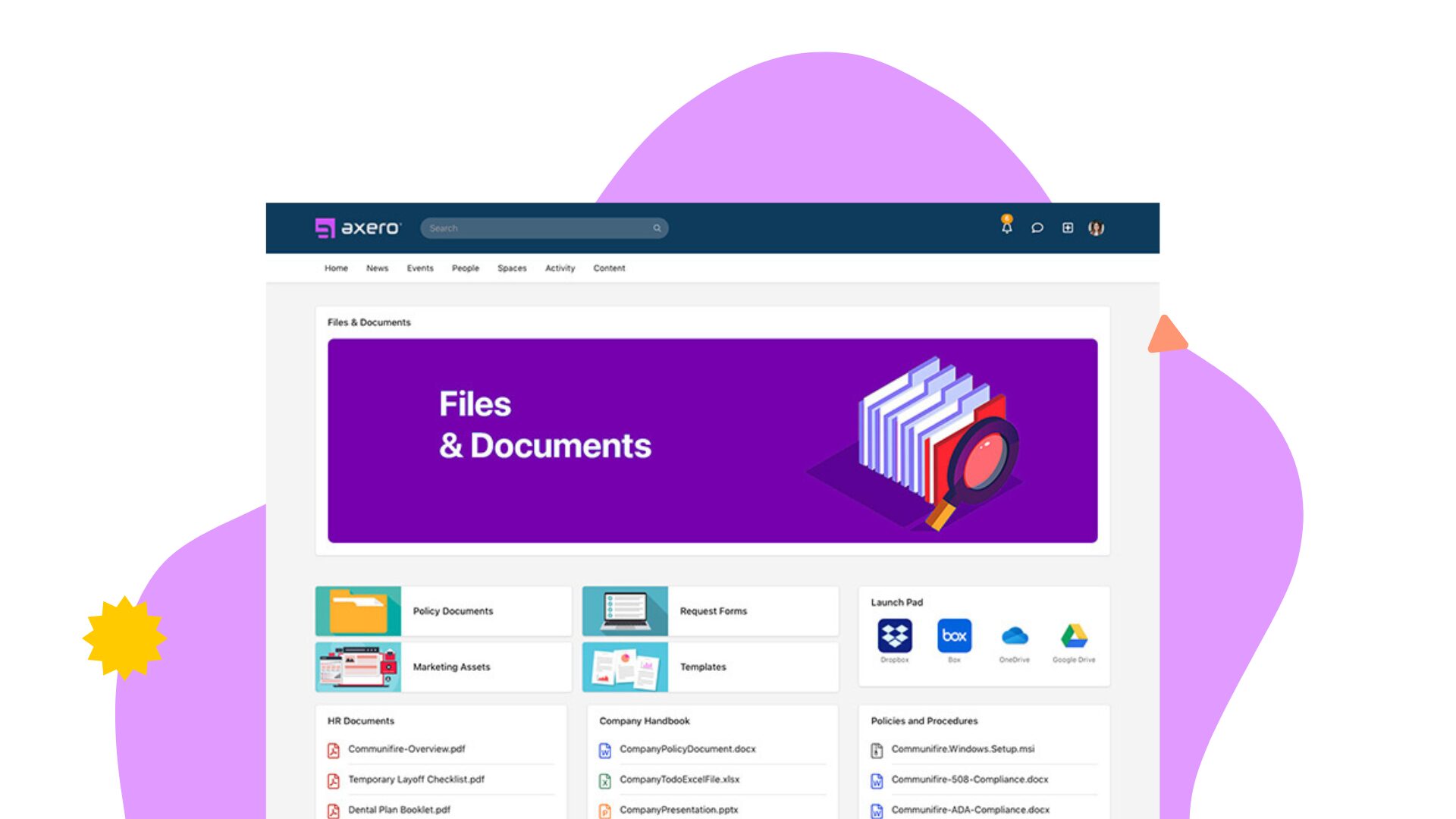
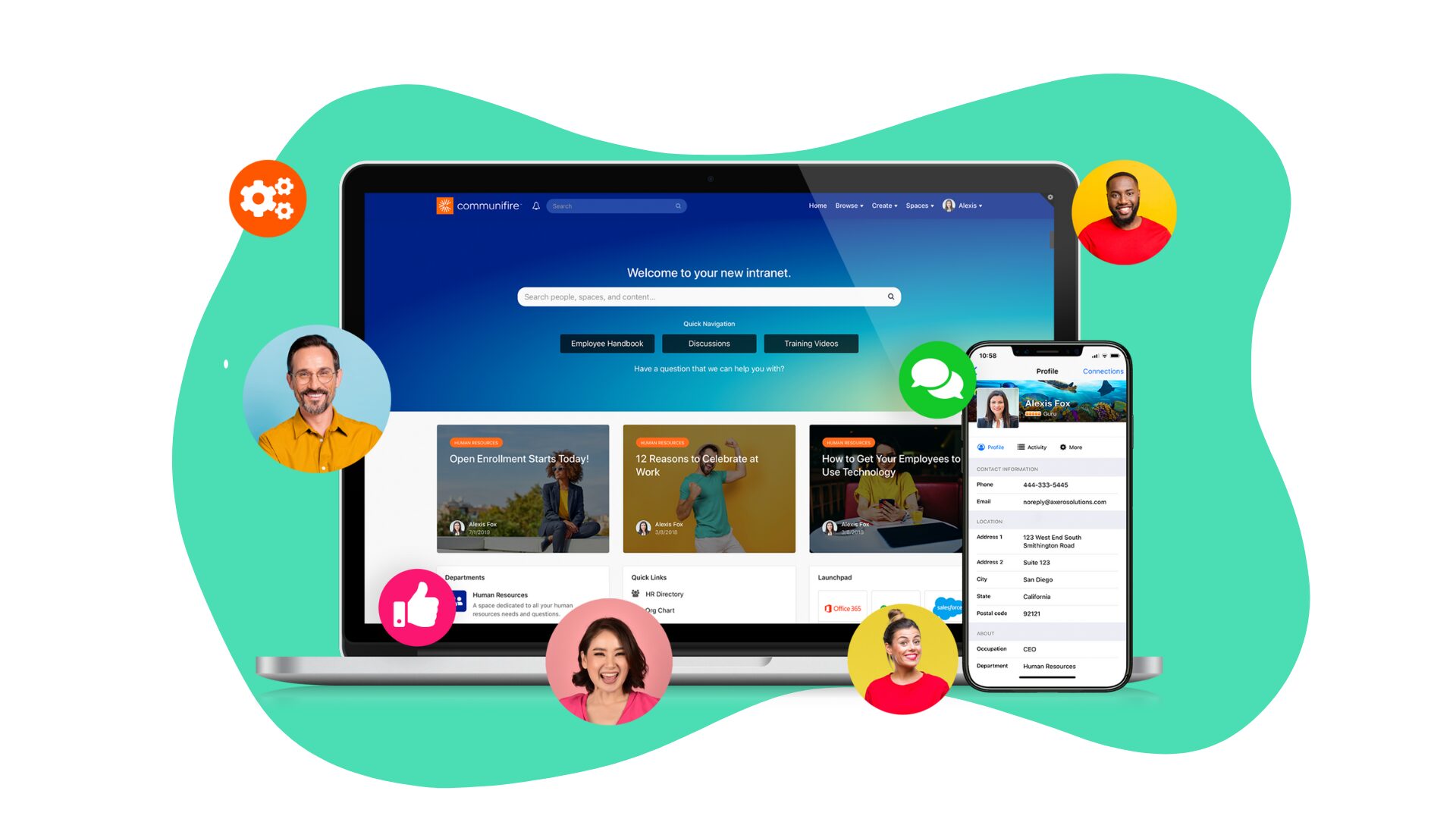

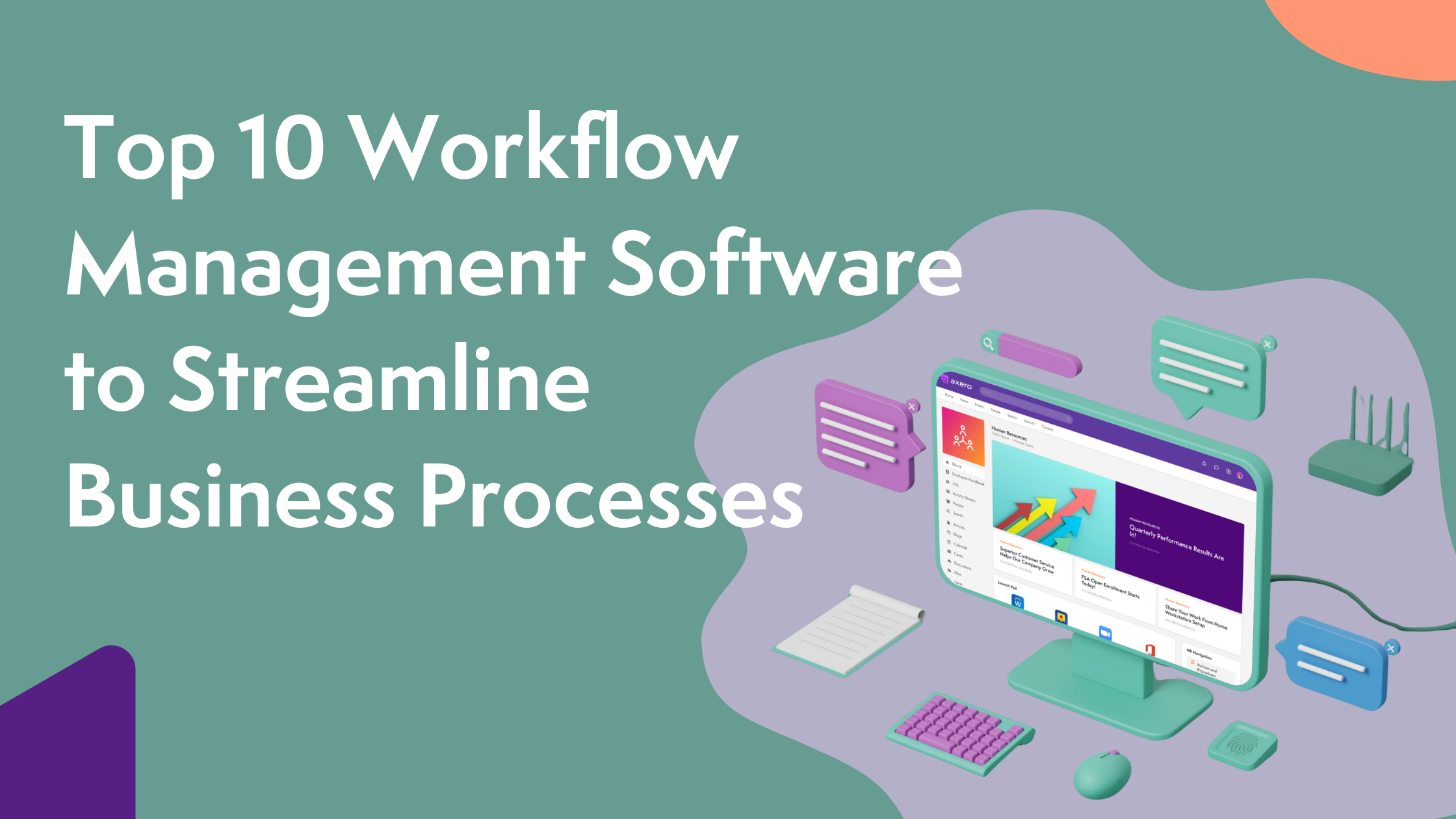


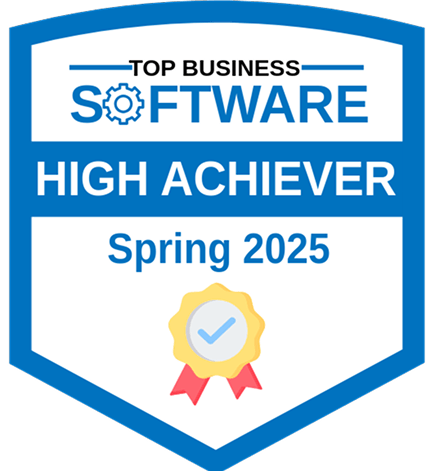


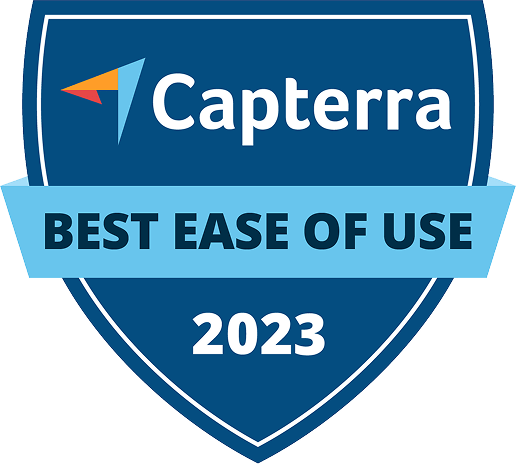
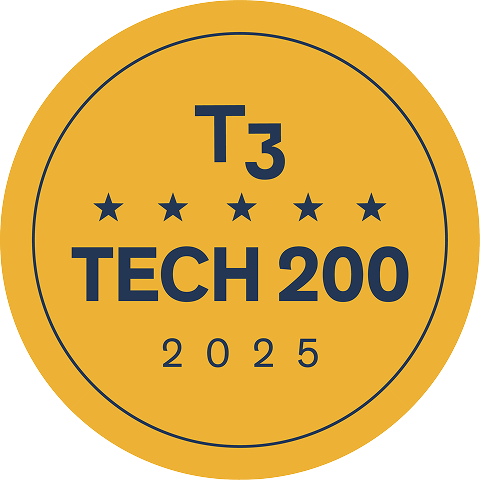
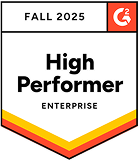

 info@axerosolutions.com
info@axerosolutions.com 1-855-AXERO-55
1-855-AXERO-55


